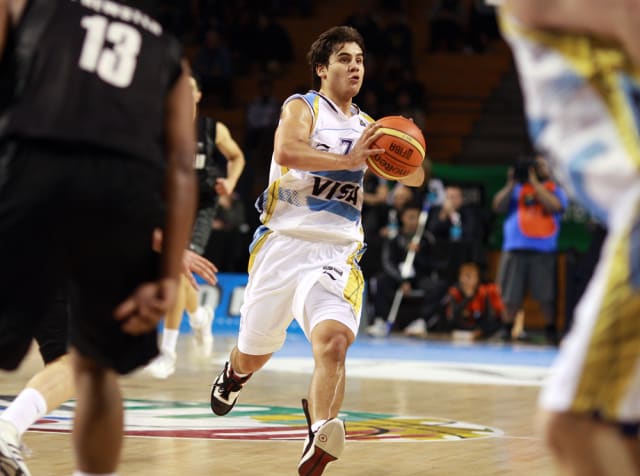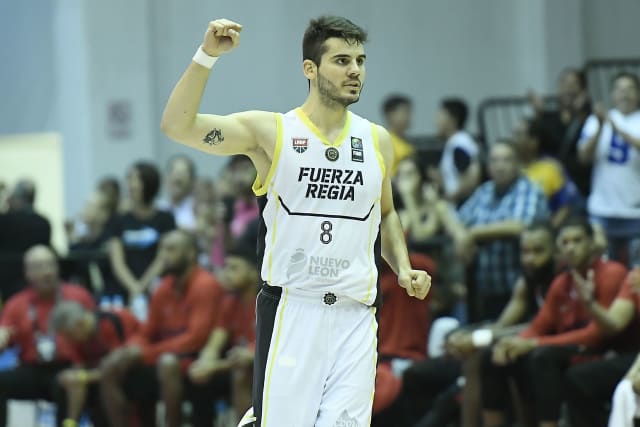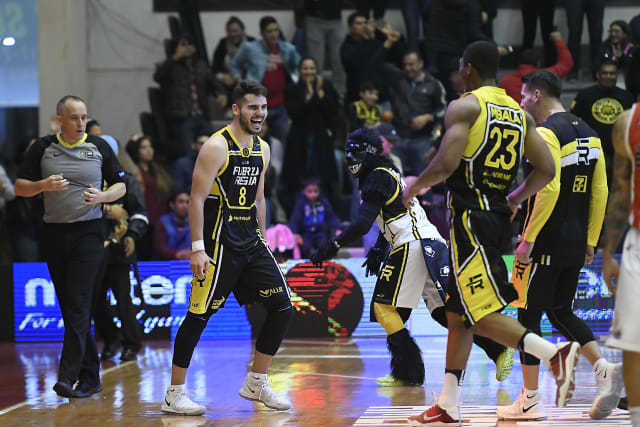Cristian Cortes: between tango and mariachis
BUENOS AIRES (DIRECTV Liga de las Américas 2018) — “I wasn't interested in going back to play basketball anymore. I just wanted to walk without pain.” The quote is awfully painful, and even more so when th
By: Alejandro Pérez
BUENOS AIRES (DIRECTV Liga de las Américas 2018) — “I wasn't interested in going back to play basketball anymore. I just wanted to walk without pain.” The quote is awfully painful, and even more so when the memory takes Cristian Cortés back to when he was 21 years old and lived in Buenos Aires.
Now, with 27 years of age, the Argentine enjoys a pleasantly opposite present, with a healthy sporting life in the highest level, although there is one detail: he plays in Mexico, his mother’s land.
This sport offers many marvelous moments, but also some unwelcome ones. It opens unimagined opportunities for some, and unfortunate situations for others. For Cortés, these last ones tested him and cornered him.

“I was 19, I had recently played with Argentina in the Juvenile Basketball World Cup and I had an injury that was difficult to rehabilitate. I had exotoses in the insertion sites of the Achilles’ tendons. That’s where my torment began. I had surgery and it wasn't fixed. During almost three years I tried several treatments and none of them rendered results. I spent a lot of money recovering, but the problem was still there,” said the player born in Rosario.
When he started to play with Obras in the National League, all hopes seemed to have vanished. “I was close to leaving basketball. I had even started to study Sports Journalism because I had assumed that, at 21, this was the end of my career. But I gave it a last shot, although thinking more about living a normal life than in playing again. I was injected with ‘platelet-rich plasma (PRP)’ and that, slowly but surely, helped me out,” he recalls.
Here we must take a break from the story to go back a few years, even before Cristian Cortés was even born, to get to know how his family came to be. This will be key later in his sports life.
His father, Hugo, was a professional soccer player in the minor leagues of Rosario Central. In the mid 1970’s, he played as goalie for Mexican team Atlante, where he meet María Balbuena, a Mexican woman whom he would marry and then have a first son. After retiring from soccer, Hugo and his family came back to Rosario, where three other sons were born — the last one of which was Cristian.
Now we return to his sports history. After being drafted in Rosario by Obras at 17 years of age, his teammate, an American with Argentine nationality called Tyler Field, encouraged him to request a Mexican passport because this could be a future work option. “I sought out my Mexican nationality, not having in mind to play over there, but to bring joy to my mom. For her it was important that I have her same nationality.”
It was understandable that Cortés had no intentions of playing in Mexico, because his sports career was developing in Argentina, where he was outstanding in his generation and was part of national teams. He had even started to give his first steps in professional sports. But a little later, his unfortunate injury would arrive, and everything was at stake.

In 2012, when his experimental treatment had placed him once again on the court, but he had no offers in his country, the possibility of playing for Brazil's Mogi das Cruzes came up. Going up to the NBB seemed to be the arrival of good times, but while playing at the Brazil League, the injury reappeared (he needed another surgery) and the bad luck returned.
It was in 2013 when the situation started to change, although very slowly. Cortés remembers: “Argentine coach Daniel Jaule was at the head of Abejas de Guanajuato in the Mexican League. I don't know how, but he learned that I had a Mexican passport and offered me to play. I decided to take on the challenge to live a new experience. But it was a bad experience. I was coming on to the team after not playing for seven months; I had no rhythm and couldn’t play at a good level. I couldn't adapt and so, I returned home.”
He went back to Argentina and played for Estudiantes de Concordia, in the second division. In the following season, 2014-2015, something unexpected happened. Mexican champions Halcones Rojos de Veracruz, offered him a contract. “I was surprised because I hadn't played well at Abejas. But Eddie Casiano, the coach, told me that he needed a player with my style, which is different from that of the Mexican player. Besides, I was tempted to be able to play at Liga de las Américas. There I improved my level, but the team's economy worsened. They started owing us a lot of money, and that affected the results,” says Cortés.
Cortés’ image had improved, which is why Halcones Rojos offered to renovate his contract for the 2015-16 season. “I stayed to try to collect the debt, but the problems were worse as time went by, and then, by the end of December, I came back to Argentina. I signed a temporary contract with Quisma to play at Liga de las Américas and, when that was over, I signed to Lanús for the National League. I was already feeling good, physically. I had no pain and had regained my rhythm.”
Comfortable within his conditions, he accepted a contract with Junin, in his country: “Argentino is a club that doesn’t pay much, but always gives good sporting opportunities. They're a humble team that always puts up a good fight. But in the midst of the season I received an offer by Fuerza Regia, which is an economic and sports powerhouse in Mexico. I couldn't let that chance go. The Argentino directives understood and behaved very well with me, setting me free.”
And it was in Monterrey where Cristian Cortés relaunched his career. “My sports life changed because I was now playing in a leading team in Mexico and internationally, where I can have a lot of game time thanks to the confidence that coach Olmos has in me. It was a great decision to come to Fuerza Regia, which allows me to compete on a high level,” he added.

The Argentine player doesn’t care if he must do 40 minutes of a daily routine of 20 different exercises for his feet. This stage allowed him to be champion in Mexico with the Monterrey team, playing as a starter in the final series, and to participate at the Final Four of Liga de las Américas, with which he concluded a great 2016-17 season.
Cortés acknowledges that in this new life “I will always be grateful to Mexican basketball, because it gave me a second opportunity in this sport. What I couldn't do in Argentina, to establish myself as a professional basketball player, I did it in Mexico. Besides, I'm happy here. I like the country, I like the people and I adapted very well. It's obvious that the maternal blood has its weight.”
Nonetheless, Cortés makes it clear: “my mom is the one who's most happy about this. She doesn’t know a lot about basketball, but she enjoys that I have re-encountered the other half of my family.”
FIBA